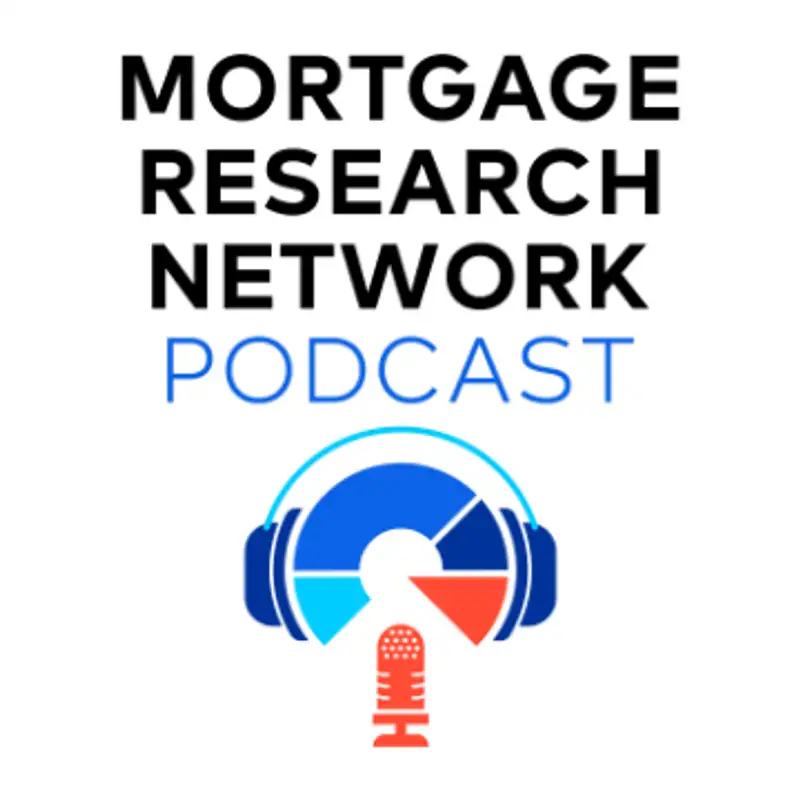Refi Frenzy: Surging 18% as Rates Dip to 6.5%
Welcome to the Mortgage Research Network Podcast. Just a note that this podcast audio is AI-generated, but the article on which it's based was produced by people. Content is also reviewed for accuracy. And your hosts, Tim and Craig, are real people. Without further ado, let's get into today's topic.
I'm your host, Tim Lucas, editor of MortgageResearch.com and a former mortgage professional, and with me is Craig Berry, a mortgage originator with 25 years experience. Craig, how about them low rates. Who saw that coming?
I know, right? mortgage refinancing just surged 18% compared to last year according to the Mortgage Bankers Association. And refinances grew 5% in the last week. All because of an unexpected twist in the jobs report. It's like watching dominoes fall in slow motion across the economy.
The jobs report was brutal. Only 73,000 jobs were added in July, when at least 100,000 were expected. What's more, 258,000 jobs were deleted from previous reports thanks to the biggest revision since 1979, not including during COVID. As a result, Joel Kan from MBA announced that rates hit 6.77%. It was the third straight weekly decrease for mortgage rates.
That's such an interesting paradox. bad economic news leading to better mortgage rates. How do you see this playing out in the broader economic picture?
Well, here's where things get really complex. we're seeing average rates near 6.5%, the lowest since last October, according to the Mortgage Research Network rate average. And what's particularly striking is that refinance applications now make up 42% of all mortgage activity, the highest since April. The mortgage market is changing almost faster than we can track it.
But it's not all roses and butterflies for mortgage rates. Let's not forget about the $3.4 trillion increase in the government debt ceiling.
That's exactly right, and here's why that matters. U.S. debt load is coinciding with tariff debates, potential inflation concerns, and whether any price increases would be temporary or stick around longer.
Let me add something interesting I noticed in the Yahoo Finance analysis - they're suggesting we shouldn't expect any dramatic rate drops in 2025. That seems to be creating some real urgency in the market.
Oh man, THAT'S the key point right there. When you look at the historical patterns, these moments of opportunity tend to be pretty fleeting. And what makes this situation unique is the level of uncertainty we're dealing with. it's not just about rates anymore, it's about the entire economic landscape.
You know what this reminds me of? That old Wall Street wisdom about timing the market versus time IN the market, though this has its own special twist.
Well, let me expand on that thought. it's really about making decisions based on your current financial situation rather than trying to predict the absolute bottom of rates. When you refinance, you have more control over the timing. But when you're buying, it's very hard to find a house when rates happen to be the lowest in a while. And you can't lock your loan before you have an accepted offer on a house. It's almost like you have to hope for the best when you find the house. You have maybe a 5 or 10 day window in which to lock. Waiting longer could mean rates go up, and you can no longer qualify for the home.
Let me wrap this up with one final thought - it's really about making an informed decision based on personal circumstances rather than trying to predict unpredictable market movements.
Exactly right, and that's what makes this current market situation so fascinating to watch unfold. The key is staying informed while being ready to act when the time is right for your situation.
That's about all the time we have for this topic, but we go into even more detail on the site. To learn more, go to Mortgage research.com and type refinance surge in the search bar on the homepage. We'll see you next time on the Mortgage Research Network Podcast.
